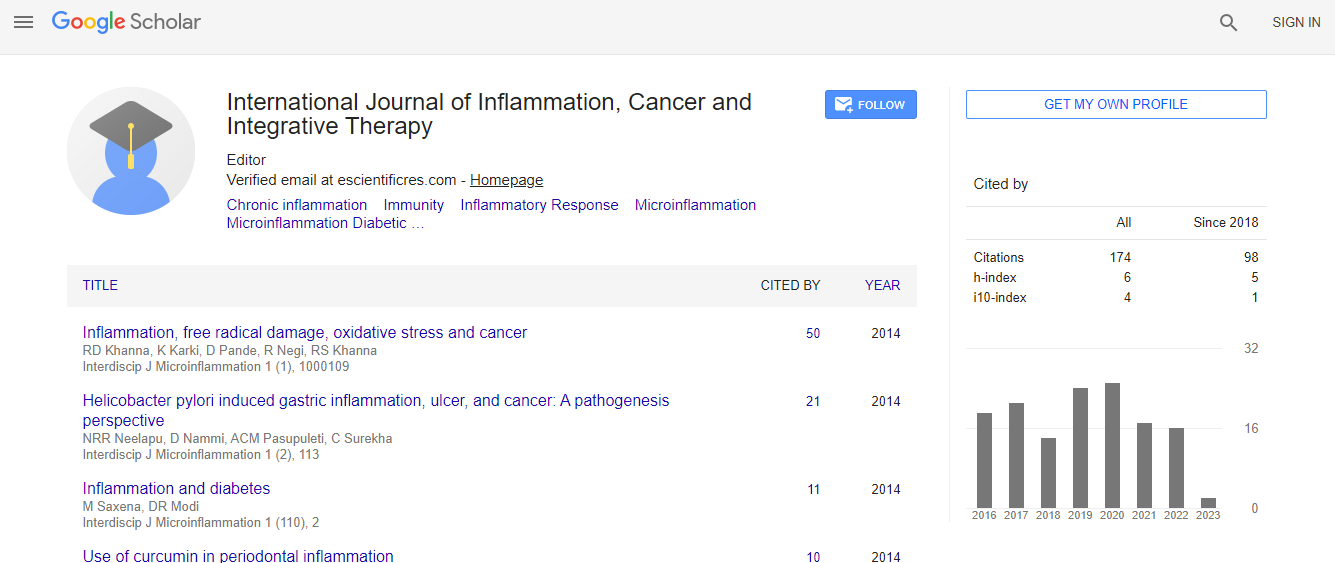Case Report
Highly Elevated Tyrosine Phosphatase Antibodies in a Type 1 Diabetic Patient with Advanced Diabetic Complications and Exocrine Pancreatic Dysfunction
Blaslov K*, Bulum T, Cuca JK and Duvnjak LVuk Vrhovac Clinic for Diabetes, Endocrinology and Metabolic Diseases, University Hospital Merkur, University of Zagreb, School of Medicine, Zagreb, Croatia
- *Corresponding Author:
- Dr. Kristina Blaslov
Vuk Vrhovac Clinic for Diabetes
Endocrinology and Metabolic Diseases, University Hospital Merkur
University of Zagreb,School of Medicine, Zagreb, Croatia
Tel: +38512353829
E-mail: kblaslov@gmail.com
Received date: August 14, 2014; Accepted date: August 23, 2014; Published date: August 25, 2014
Citation: Blaslov K, Bulum T, Cuca JK, Duvnjak L (2014) Highly Elevated Tyrosine Phosphatase Antibodies in a Type 1 Diabetic Patient with Advanced Diabetic Complications and Exocrine Pancreatic Dysfunction. Microinflammation 1:106. doi: 10.4172/2381-8727.1000106
Copyright: 2014 Blaslov K et al.This is an open-access article distributed under the terms of the Creative Commons Attribution License, which permits unrestricted use, distribution, and reproduction in any medium, provided the original author and source are credited
Abstract
Objective and importance: Pancreatic exocrine insufficiency (PEI) is a phenomenon observed in type 1 diabetic mellitus (T1DM) patients interpreted as a disease complication and explained by several hypothesis: Impairment of enteropancreatic reflex and changes in gastrointestinal peptides due to diabetic autonomic neuropathy (DAN) is one of them. Autoimmune damage is speculated as one of the underlying cause in the DAN pathogenesis. Recent studies report that high levels of tyrosine phosphatase antibodies (IA-2Abs) may predict rapid pancreatic β cell failure and could be indicative for more aggressive autoimmunity.
Case presentation: A 55-year old T1DM male patient with 13 years diabetes duration presented with the symptoms of tingling and spasms in the hands and legs and every day diarrhea followed by meals. Several times he has been hospitalized at the Department of Gastroenterology due to diarrhea. No bacteriological or viral causes were found.
Intervention: Neurological examination has showed severe case of DAN. Fecal fat tests as well as muscle fiber presence in stool were positive. Immunology tests for T1DM specific antibodies revealed highly positive IA-2Ab (2128.0 IU/mL), low glutamic acid antibody titre (12,9 IU/mL) and negative islet cell antibody titre (<5 JDF U). Following the metoclopramide three times 10 mg per os and pancreatin three times 400 mg per os daily, the patient started to recover and was subsequently discharged.
Conclusion: We consider high IA-2Ab levels are involved in the pancreatic and autonomic nerve tissue damage either simultaneously or predominantly on one of them which consequently lead to the development of the another.

 Spanish
Spanish  Chinese
Chinese  Russian
Russian  German
German  French
French  Japanese
Japanese  Portuguese
Portuguese  Hindi
Hindi 
